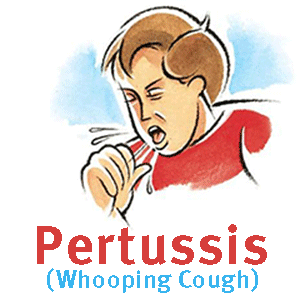- Home
- Editorial
- News
- Practice Guidelines
- Anesthesiology Guidelines
- Cancer Guidelines
- Cardiac Sciences Guidelines
- Critical Care Guidelines
- Dentistry Guidelines
- Dermatology Guidelines
- Diabetes and Endo Guidelines
- Diagnostics Guidelines
- ENT Guidelines
- Featured Practice Guidelines
- Gastroenterology Guidelines
- Geriatrics Guidelines
- Medicine Guidelines
- Nephrology Guidelines
- Neurosciences Guidelines
- Obs and Gynae Guidelines
- Ophthalmology Guidelines
- Orthopaedics Guidelines
- Paediatrics Guidelines
- Psychiatry Guidelines
- Pulmonology Guidelines
- Radiology Guidelines
- Surgery Guidelines
- Urology Guidelines
Latest Whooping cough guideline by Public Health England

Public Health England has released its latest Whooping cough guideline. The new guideline which updates the 2012 Health Protection Agency (HPA) Guidelines for the public health management of pertussis is based on a recent review of all currently available scientific evidence and consultation with experts where required.
1. The new guidelines emphasize the recommended details to be recorded when a case is reported
- Caller details
- Demographic details:
- Clinical/epidemiological details:
- clinical information—onset dates, cough (including duration), the presence of inspiratory whoop/apnoea/post-tussive vomiting, complications, treatment
- need for admission to hospital (including dates where relevant)
- pertussis immunization history‡(including dates)
- pregnancy status
- contact with confirmed or suspected case
Read Also: Vaccinating mothers against whooping cough during pregnancy protects infants : Study
2.Recommendations for testing Infants and children under the age of two years:
PCR testing is recommended for infants and children with suspected pertussis in the early stages of the illness and <21 days post cough onset · if local laboratory facilities permit, culture should also be performed. Please ask local laboratory for any putative B. pertussis isolates (pure cultures) to be sent to RVPBRU for confirmation · in those who present late, serology can be undertaken (>14 days post cough onset) but is not usually recommended for infants under 12 months as the antibody response of infants may not be typical of that seen in older children and adults.
Serology is not recommended in children who have received a pertussis-containing vaccine in the previous year as the results may be confounded by recent vaccination and therefore is unlikely to be in children under the age of two years. Liaise with local NHS or regional PHE microbiologist, HPT staff, or RVPBRU for further advice.
3. Appropriate public health action should not wait for laboratory results as negative results cannot be used to exclude pertussis infection. In the event of an outbreak, the local Health Protection Team (HPT) and the testing laboratory should be informed in order that testing can be appropriately prioritized
4. Ideally, antibiotics should be administered as soon as possible after the onset of illness in order to eradicate the organism and limit ongoing transmission.
5. Managing cases
- If three weeks or less from symptom onset, treat with appropriate antibiotics once PCR and culture tests have been taken. Exclude the case from school/work until they have completed two days of the antibiotic course. Work with the local HPT to identify and manage vulnerable close contacts. There is no need to prescribe a second course of antibiotics even if symptoms are not resolving
- If more than three weeks from symptom onset, antibiotics are not required to manage pertussis even if the case still has symptoms. No exclusion of the case is necessary
Read Also: Tdap vaccine during pregnancy reduces pertussis occurrence in infants
6.Recommended antibiotic treatment and postexposure prophylaxis by age group
| Age group | Clarithromycin¶ | Azithromycin¶ | Erythromycin | Co-trimoxazole¶†† |
|---|---|---|---|---|
| Neonates (<1 month) | Preferred in neonates 7.5 mg/kg twice a day for 7 days | 10 mg/kg once a day for 3 days | Not recommended due to association with hypertrophic pyloric stenosis | Not licensed for infants below 6 weeks |
| Infants (1 month–12 months) and children (>12 months) | 1 month to 11 years: | 1 to 6 months: 10 mg/kg once a day for 3 days | 1 to 23 months: 125 mg every 6 hours for 7 days** | 6 weeks to 5 months: 120 mg twice a day for 7 days |
| Under 8 kgs 7.5 mg/ kg twice a day for 7 days | > 6 months: 10 mg/kg (max 500 mg) once a day for 3 days | 2 to 7 years: 250 mg every 6 hours for 7 days** | 6 months to 5 years: 240 mg twice a day for 7 days | |
| 8–11 kg 62.5 mg twice a day for 7 days | 8 to 17 years: 500 mg every 6 hours for 7 days** | 6 to 11 years: 480 mg twice a day for 7 days | ||
| 12–19 kg 125 mg twice a day for 7 days | 12 to 17 years: 960 mg twice a day for 7 days | |||
| 20–29 kg 187.5 mg twice a day for 7 days | ||||
| 30–40 kg 250 mg twice a day for 7 days | ||||
| 12 to 17 years: 500 mg twice a day for 7 days | ||||
| Adults | 500 mg twice a day for 7 days | 500 mg once a day for 3 days | 500 mg every 6 hours for 7 days** | 960 mg twice a day for 7 days |
| Pregnant women‡‡ | Not recommended | Not recommended | Preferred antibiotic—not known to be harmful | Contraindicated in pregnancy |
For more reference log on to https://www.guidelines.co.uk/infection/phe-whooping-cough-guideline/454396.article

Disclaimer: This site is primarily intended for healthcare professionals. Any content/information on this website does not replace the advice of medical and/or health professionals and should not be construed as medical/diagnostic advice/endorsement or prescription. Use of this site is subject to our terms of use, privacy policy, advertisement policy. © 2020 Minerva Medical Treatment Pvt Ltd